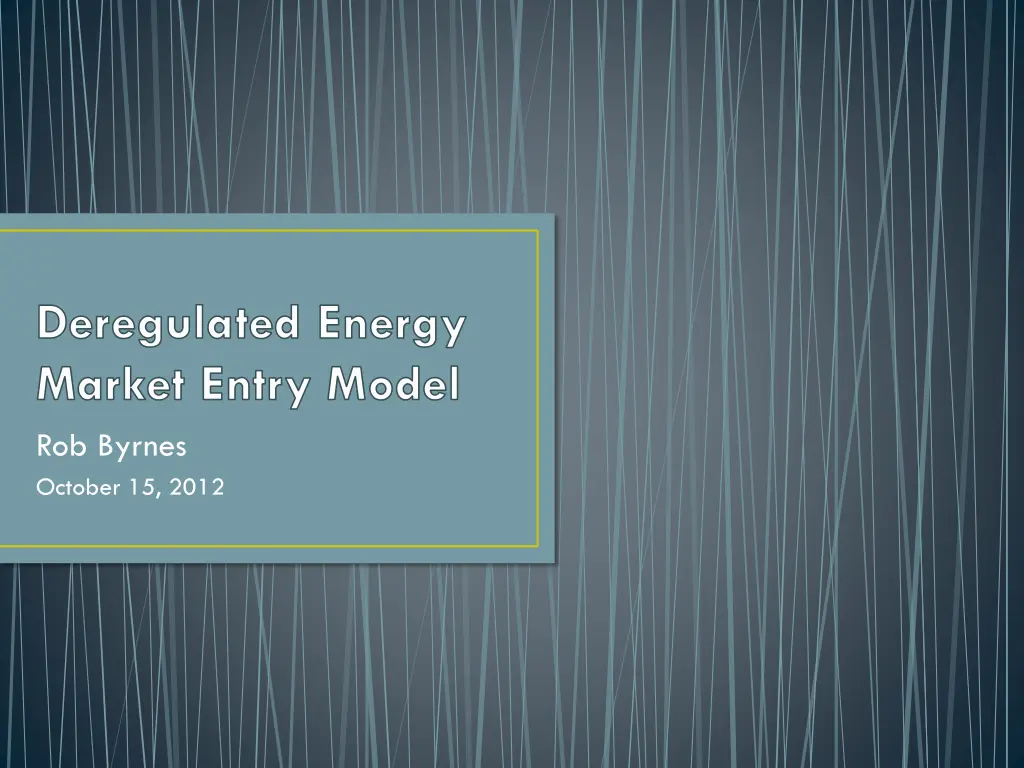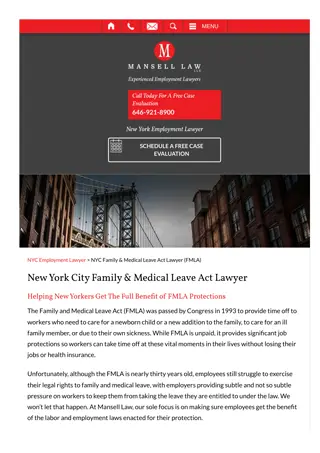
Energy Market Entry Model Analysis by Rob Byrnes
Explore the deregulated energy market entry model presented by Rob Byrnes, examining strategic criteria, alternatives, priority opportunities, risks, and concluding recommendations. The analysis focuses on American Electric Power (AEP), South East Ohio, and insights into competitive opportunities. Synthesized results and sensitivity analysis are discussed, leading to a recommendation to enter the AEP market promptly while keeping an eye on possible market shifts and opportunities in PECO gas market.
Uploaded on | 0 Views
Download Presentation

Please find below an Image/Link to download the presentation.
The content on the website is provided AS IS for your information and personal use only. It may not be sold, licensed, or shared on other websites without obtaining consent from the author. If you encounter any issues during the download, it is possible that the publisher has removed the file from their server.
You are allowed to download the files provided on this website for personal or commercial use, subject to the condition that they are used lawfully. All files are the property of their respective owners.
The content on the website is provided AS IS for your information and personal use only. It may not be sold, licensed, or shared on other websites without obtaining consent from the author.
E N D
Presentation Transcript
Deregulated Energy Market Entry Model Rob Byrnes October 15, 2012
Introduction / Background Deregulated Energy Markets
Alternatives American Electric Power (AEP) South East Ohio 1.5 million customers Overlap with Columbia Gas of Ohio Philadelphia Electric Company (PECO gas) Eastern Pennsylvania 500,000 customers Overlap with PECO electric Potomac Edison Power Company (PEPCO) Central Maryland 500,000 customers No overlap with existing markets
Ratings Priority Opportunity And Risks are the most important Priorities
Subnet Analysis Opportunity Risks
Synthesized Results Additive (negative) (Long Term) Multiplicative (Short Term)
Sensitivity Analysis Opportunity Sensitivity Analysis Decrease from AEP PECO and PEPCO Close the gap around 65%. Never able to overtake AEP
Conclusion Go into AEP market as soon as possible Prepare to enter to PEPCO market next. Keep watch on the market for any changes which would impact the ranking Monitor the PECO gas market as it may become more attractive

